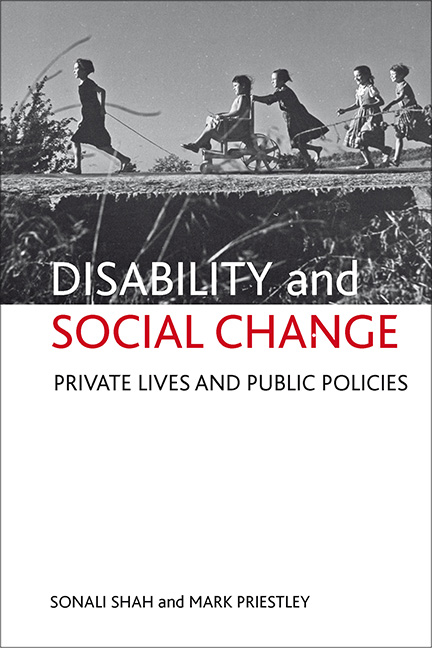four - Living with medicine
Published online by Cambridge University Press: 01 September 2022
Summary
The examples in Chapters Two and Three drew attention to claims about the influence of public medicine in the private lives of young people with physical impairments. The stories suggested at least three kinds of influence. Medical diagnosis and opinion appeared to frame future life expectations or trajectories, even from birth. Medical treatment regimes appeared to shape early life experiences, particularly in relation to hospital stays. Medical authority appeared to be significant at key turning points, particularly in choosing schools. The stories also raised interesting questions about medicine and social change. To what extent have life expectations been shaped by medical knowledge? Have challenges to medical authority altered power-knowledge relationships between health professions and disabled people? How have developments in medical technologies and health care institutions affected young people's life chances and choices? The chapter examines these kinds of questions by examining the influence of health professionals, policies and institutions on the life expectations and life pathways of the three generations.
The role of medicine in society was increasingly scrutinised and debated during the second half of the 20th century. Its role in disabling social relations has been much asserted in the critical disability studies literature (for example, Barnes and Mercer, 1996; Thomas, 2007) and there are frequent references to the ‘medical model’ of disability. Although such references are often juxtaposed with discussions of the ‘social model’ this misses an important point. For the original exponents of social model analysis, medicine played its role within a larger scheme. As Oliver (1996, p 31) put it:
The individual model for me encompassed a whole range of issues and was underpinned by what I called the personal tragedy theory of disability. But it also included psychological and medical aspects of disability. … In short, for me, there is no such thing as the medical model of disability, there is instead, an individual model of disability of which medicalisation is one significant component.
Numerous writings have credited medicine with policing normalcy and constraining life expectations for disabled people. For example, American functionalist sociology in the 1950s appeared to characterise impairment, along with illness, as a form of ‘deviance’ from social norms that required correction.
- Type
- Chapter
- Information
- Disability and Social ChangePrivate Lives and Public Policies, pp. 69 - 92Publisher: Bristol University PressPrint publication year: 2011



